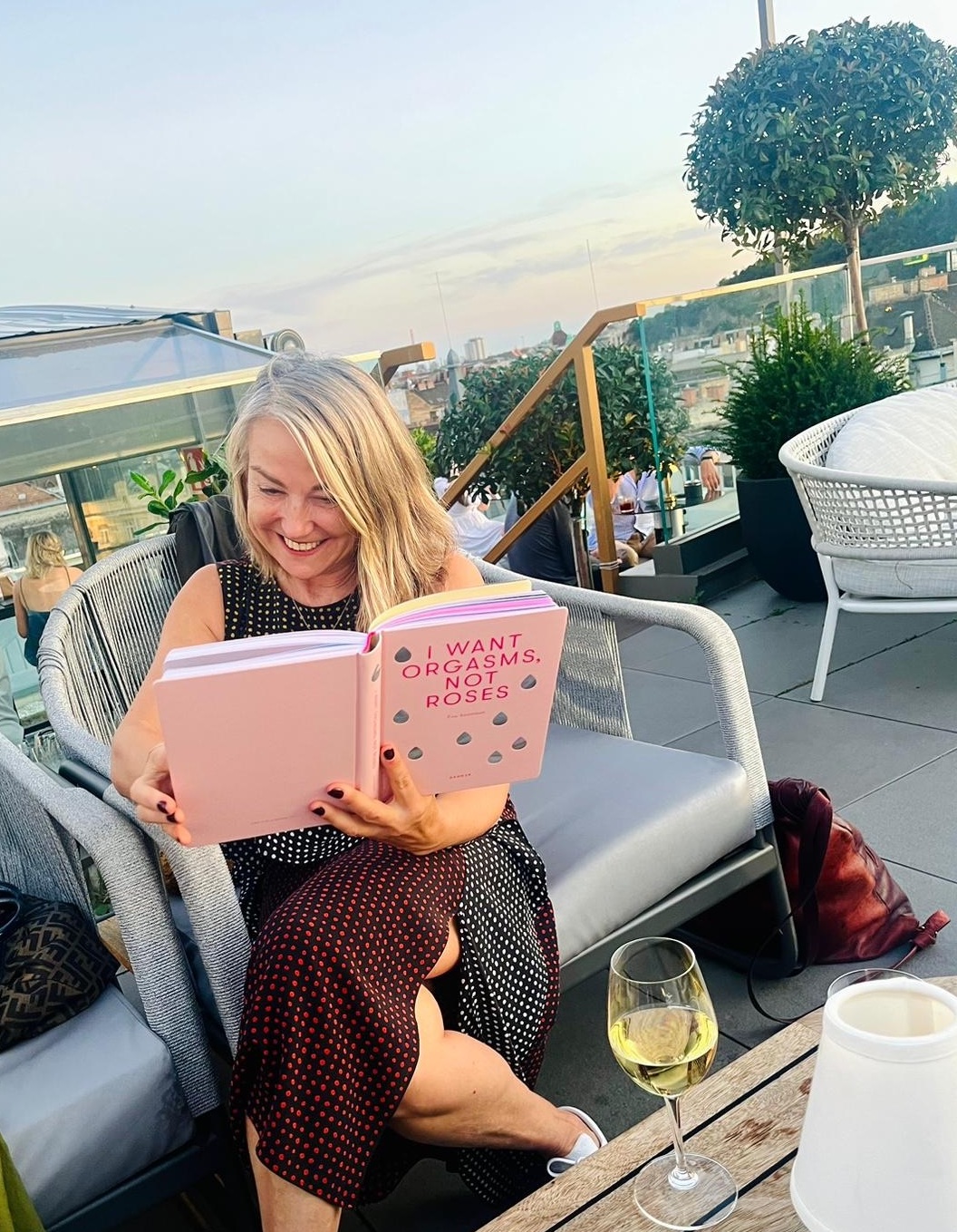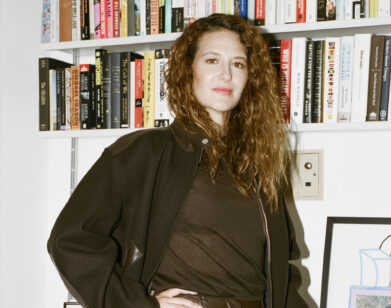RORSCHACH TEST
“Surveillance Is Not Intimacy”: Esther Perel on Cheating, Prenups, and Polyamory
Esther Perel is a modern relationship expert. She is, perhaps, the modern relationship expert. On her podcast, Where Should We Begin? with Esther Perel, the Belgian-born psychotherapist functions as the nation’s insightful and clear-eyed godmother, offering her guests advice in navigating the various complexities of relationships today, from heartbreak and divorce to the ever-contentious topic of polyamory. “Traditionally, our relationships were organized around loyalty and community, and our struggle was finding space for our individuality and freedom of expression within that,” she told us last week. “We now live in a model where at the heart of a relationship is the individual with free choice and options.” Perel, who’s taking her wisdom on tour this month, helps listeners make sense of those options. With cuffing season around the corner, we asked the iconic psychotherapist to take the hot seat for this week’s Rorschach Test, in which she sounds off on psychedelics, cheating, Freud, advice columns, and the importance of prenups.—JULIETTE JEFFERS
———
FREUD
“He is the father of modern psychoanalysis and still very much an essential part of how we think about the individual, the conscious, the unconscious, our desires, our challenges between love and desire. His books are foundational, and they have shaped modern western thinking. But there’s a lot of things that have been refuted, and there are approaches that are less mechanistic.“
———
PRENUPS
“Prenups remind people that love is at the heart of modern marriage, but marriage remains an economic institution as well, which people often forget. Trust comes and goes in a relationship. So prenups are very important, and so are postnups. They’re probably even more important. Because marriage today is a capstone model, and not a cornerstone model.“
———
HYPNOTHERAPY
“It’s in the pantheon of important practices. It can take people to amazing places. I definitely refer people for hypnosis around issues of addiction and trauma. I’ve been in the presence of amazing hypnotherapists, and this is what people today often try to reach through psychedelics.”
———
VANITY
“I think vanity with a good dose of humor is wonderful. There’s so many things we do for vanity, and to be vain is also sometimes a form of self-care. So, innocent vanity? It can be lots of fun. Narcissistic vanity can become problematic.”
———
CHEATING
“I wrote a whole book about cheating, you know? Cheating in romantic relationships can be gutting, a deep experience of betrayal, a violation of trust, the feeling of the rug being pulled from under you. But it’s very important to understand that cheating is often not done for the purpose of betrayal or lying or duplicity. It’s done out of longing, yearning, and loneliness. So, in my work, you need to be able to hold both, because what it means for the other person is essential to how you’re going to experience what it does to you.”
———
UNREQUITED LOVE
“Deeply, deeply painful. Just this week actually, we lost one of the greatest scientific researchers of love, the evolutionary biologist Helen Fisher. The pain of unrequited love—the pain of heartbreak—is a physical pain, as powerfully painful as a withdrawal from a drug, as she proved. But unrequited love ends one day when, suddenly, your eyes open up to the world again.”
———
GOING THROUGH YOUR PARTNER’S PHONE
“I’d say surveillance is not intimacy.”
———
FOUCAULT
“One of the ideas that stays with me is the notion of the panopticon. It is the essential symbol of surveillance. Big Brother watching you is one thing, but if he’s watching you without you knowing when he’s watching, you feel watched all the time and are constantly having to censor yourself, to watch yourself, to change your behavior, to adapt, to lie, to hide.”
———
ELECTION YEARS
“Well, the election cycle in the U.S. is way too long. We’re 70 days away, and that’s probably as long as it should be. I’m from Belgium, where we have mandatory voting. Voting is not a right; it’s a duty, a responsibility. Therefore, you better be somewhat educated and have a sense as to what’s going on, who you’re voting for, and what they stand for. The number of people who vote [in the U.S.] is rather low when you think about the enormity of the campaigns and all the money that goes into them.”
———
POLYAMORY
“Traditionally, our relationships were organized around loyalty and community, and our struggle was finding space for our individuality and freedom of expression within that. We now live in a model where at the heart of a relationship is the individual, with free choice and options, and that individual is often looking for community. Polyamory is a form of community building, another iteration of community. “
———
ARTIFICIAL INTELLIGENCE
“What I am concerned with is the rise of artificial intimacy. On the other hand, AI is doing a tremendous amount of stuff in medicine, in mental health. It is an utter revolution that is going at full speed. But it also is creating massive social atrophy as we live more and more in a contactless world. I think the amount of things being done in the realm of the artificial is phenomenal, but I think that we can’t let it define us.”
———
ADVICE COLUMNS
“They’re part of the notion that we rely on experts. And part of why we rely on experts, at this moment, is because we no longer have the traditional structures in place that provided us with all the answers and told us how to make the decisions we need to make. Advice-givers were meant to have common sense; they were meant to be not dogmatic, but pragmatic. But the complexity of modern relationships is such that I don’t have all the answers. So therefore, we are going to co-create a conversation, we’re going to think together.”
———
CHILDLESS CAT LADIES
“The phrase ‘childless cat ladies’ presupposes that people who have and want children are more upright citizens, that they have more authority and a bigger stake in the building of a nation. It also puts the family at the center. But I think today, we have to redefine the concept of family, which may mean partners you’re not married to or children that you are co-parenting with somebody who is not necessarily your partner. So it’s provocative, it’s mean-spirited, it’s divisive, and it’s polarizing.“
———







